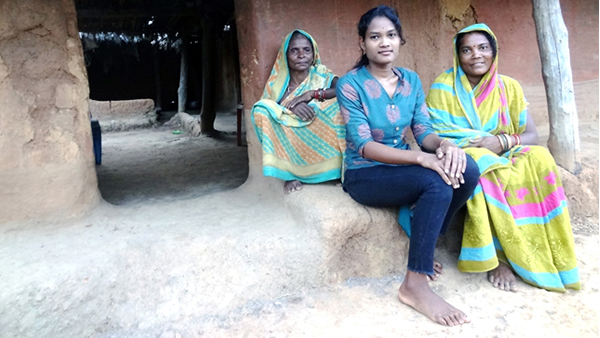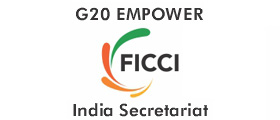Kalabati Dehury was just 20 but not having finished school or picked up any professional skills, she sat idle at home, depending on hand-outs from neighbours and friends.
But two years back, her fortunes changed when she was mobilised to enrol in the UN Women-supported Second Chance Education (SCE) and Vocational Learning Programme implemented by a local NGO partner called Aaina, in Odisha’s Dhenkanal district. It is here that she learnt to sew. Very soon she qualified for a job as a sewing operator with a textile unit in Tamil Nadu. Today, Kalabati can not just dream of a better life and future, but actually has the skills to turn these dreams into reality.
Many other girls like her especially from marginalised parts of the country – who were sitting at home owing to a lack of professional skills and hence job opportunities – have been empowered by the Second Chance Education programme. Puja Patra, 22, chose to train as a nursing attendant. She had the opportunity to train at a hospital in Bhubaneswar, at the peak of Covid-19 pandemic, and now works as a nurse in a large private hospital in Andhra Pradesh, along with seven other women peers.
Mila Nayak, a tall girl in her late teens is dreaming of becoming a police officer.
Kalabati, Puja, and Mila are among a whole generation of young women from among the most backward and poor communities in Kamakhyanagar block of Dhenkanal, one of Odisha’s Aspirational Districts, who have turned their lives around by enrolling in the Second Chance Education programme and either completing their education or acquiring professional skills, or both. Many of them are now working out of Odisha in factories and hospitals. The programme enables women to re-enter formal education, access vocational training, learn entrepreneurial skills, and connects them to employment and business opportunities.
“All they needed was an opportunity,” says Biswa Ranjan Behera, Aaina’s Project Coordinator for the UN Women’s Second Chance Education programme at Kamakhyanagar. “When it came their way, they simply grabbed it with both their hands.”
Over 300 women, between 16 and 50 years of age, enrolled for and passed their secondary and senior secondary examinations under the UN Women programme. About 250 other younger women from the poor and vulnerable tribes of Mundo, Jo, Sahar, Juang, Gauda, and Dalit communities acquired new skills, and landed jobs across India, earning salaries that allowed them to expand their horizons.
Today they are supporting their families and are not financially dependent on anyone else. They are experimenting with their new lives, they are on social media telling their stories, posting entertainment short videos – that are immensely popular with today’s young population, as well as videos of their lives on a closed Whatsapp group, facilitated by Aaina staff.
They are living and loving every moment of their second chance.
 |
 |
 |
These stories of women-led development have been compiled by UN Women India. All copyrights to the stories and images are held by UN Women India Country Office dated December 2022. |

